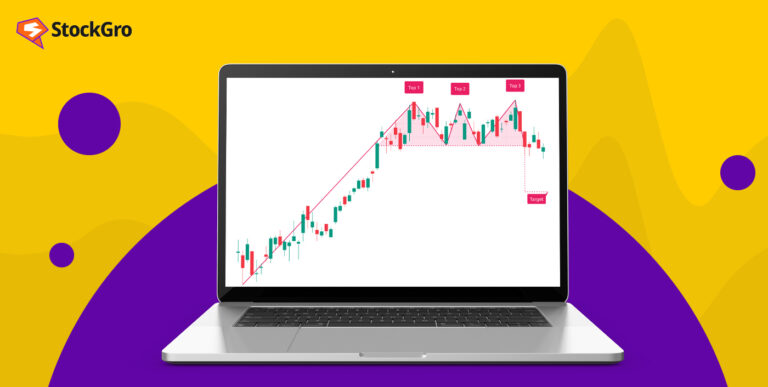
You’re sitting in a café, sipping on your latte, and someone at the next table is talking about the stock market. You overhear the words “market value,” but what does that really mean?
Understanding market value is important, not just for big investors but also for beginners who are just dipping their toes into the financial waters. In this blog, we will break down the concept of market value, why it matters, and how it plays a role in your investment decisions.
What is market value?
Imagine you’re at an auction, and you see a painting sell for ₹10,000. That’s its market value—the price someone is willing to pay for it. Market value applies to many things, not just art.
In the investment world, it’s a measure of how much a stock or other asset is worth at any given moment.
Let’s delve into the critical concepts of share market value and open market value to better understand their pivotal roles in the investment landscape.
Market value of shares
In the world of stocks, each share has a price tag. This price is not static; it goes up and down based on a variety of factors, such as news about the company and general economic conditions.
If you own shares in a prominent Indian company like Reliance Industries, the market value of your shares is the current price they would sell for on the stock market.
You may also like: What is face value? The investment secret you need to know!
What is open market value?
The term “open market value” is often used interchangeably with market value. It simply refers to the current price that an asset, whether a stock or a piece of real estate, would fetch if it were sold on an open market where anyone could purchase it.
Market value of a company
Now, let’s shift our focus from individual assets to entire companies. What does market value mean in this broader context? Simply put, the market value of a company is the combined worth of all its shares of stock. Let’s look further.
- Calculating market value
The calculation of a company’s market value, often referred to as “Market Capitalization,” can be expressed as:
Formula
Market Capitalization=Current Share Price×Total Number of Outstanding Shares
Example
Let’s consider Tata Motors as an example:
- Current Share Price: ₹100
- Total Number of Outstanding Shares: 1 crore
Using the formula, the market capitalization of Tata Motors would be:
Market Capitalization=₹100(Current Share Price)×1 crore(Total Number of Outstanding Shares)
Market Capitalization=₹100 crore
Interpretation
A market capitalization of ₹100 crore for Tata Motors would indicate that the market values the entire company at that amount. This is a significant metric for investors, as it gives an overview of the company’s size and how the market perceives its worth.
Do note that market capitalization is not the only factor to consider when evaluating a company’s worth or potential for investment. Other factors like revenue, profits, growth rate, and competitive positioning should also be considered.
- Understanding the meaning behind the number
A company like Tata Motors with a high market value might suggest investors believe in its growth potential. On the other hand, a lower market value might indicate less confidence. But, market value isn’t everything. It’s one piece of the puzzle.
Why market value is Important to Investors?
As an investor, understanding the market value of an asset is crucial—it serves as a window into the health and attractiveness of a given investment option. So, why is market value so important?
Helps in Decision-Making
- Timing: Knowing the market value helps you gauge whether it’s a good time to buy or sell a particular asset.
- Opportunity: If you believe that the current market value of a stock is undervalued compared to its intrinsic value, this could signify a good buying opportunity.
Also Read: Do Indian markets mirror global trends?
Understanding Market Trends
- Tracking Changes: Keeping an eye on fluctuations in market value can reveal overarching trends in a sector or company.
- Investment Timing: If you notice that the market value of a particular sector or company is on an upward trend, it might be an indicator that now is an opportune time to invest.
Risk Assessment
- Profit vs. Market Value: Companies with high market values but low profits may represent riskier investments.
- Informed Choices: Understanding the market value in the context of other financial metrics can help you make a more comprehensive risk assessment.
These are some of the key reasons why market value is an indispensable tool for investors in their decision-making processes.
Why market value is important to investors?
| Feature | Description |
| Dynamic Nature | Market value changes frequently based on various factors such as supply, demand, and economic conditions. |
| Measured in Real Time | Market value is often updated in real-time, especially for publicly traded assets like stocks. |
| Influenced by Perception | Market value is not just about the numbers; it also reflects investor sentiment and expectations. |
| Easy to Access | For publicly traded companies, market value information is readily available to investors. |
| Broad Range | Market values can range from very small sums for lesser-known companies to billions for industry giants. |
| Affects Investment Decisions | High or low market value can influence whether investors buy or sell shares. |
The changing nature of market value
Market value is far from static; it’s a number that constantly shifts due to a host of factors such as:
- External factors: Economic policies, geopolitical tensions, and even climate can have an impact on market value. For instance, a strong monsoon can significantly affect the market values of companies in the agriculture sector.
- Internal factors: A company’s internal developments, like the launch of a new product or a change in leadership, can also trigger shifts in its market value. For example, if Wipro secures a lucrative contract, it’s likely that its market value will experience an upward trend.
How do we find the market value?
Knowing how important market value is, your next question might be, “How do I find out the market value of a particular company or asset?” It’s simpler than you think. Let’s explore.
- Stock market listings
If you’re interested in the market value of a particular stock, it’s as easy as checking the stock market listings. Websites, apps, and financial news channels provide real-time updates on stock prices.
For instance, you could check the NSE (National Stock Exchange) or BSE (Bombay Stock Exchange) listings to know the current market value of shares of companies like HDFC Bank or TCS.
- Expert valuations
For assets that aren’t publicly traded, like a small business or a piece of real estate, you might need to get an expert valuation. Professionals like property appraisers can assess the open market value of these kinds of assets.
Also Read: Beat the market: Your ultimate guide for fundamental analysis tools.
Market value versus other values
You may have heard that “all that glitters is not gold,” and this saying holds true in the investment world as well. While market value is an essential yardstick for gauging the worth of an asset or a company, it’s not the only one.
Other types of values provide additional layers of understanding, allowing you to analyze an investment from multiple angles.
- Book value
First up is the book value, a term that often appears in company reports and financial news. Read more here.
- Intrinsic value
While book value comes from a company’s balance sheet, intrinsic value is more personal—it’s your individual assessment of what an asset should be worth.
The importance of intrinsic value
Imagine you have done your homework on Maruti Suzuki, examining its sales, growth, and potential. Your analysis might lead you to conclude that the market undervalues the company.
Here, your intrinsic value differs from the current market value, which could indicate that it’s a good time to buy shares.
Factors affecting market value
So, we’ve established that market value is important, but it’s also dynamic. It’s like the weather, always changing and influenced by a range of elements.
Let’s look at some factors that have a significant impact on the market value of companies and assets.
- Economic climate
The overall economic situation plays a big role. A booming economy usually boosts market values, while a recession often brings them down.
- Supply and demand
The law of supply and demand is at the core of market value. If more people want to buy a stock than sell it, the price usually goes up, increasing its market value.
- Company performance
How well a company is doing in terms of sales, profits, and growth plays a significant role. Companies that consistently report strong earnings often have higher market values.
Examples of companies and their market value
To give you a clearer picture of what market values look like in the real world, let’s examine a few examples from the Indian context.
| Company | Current Share Price (₹) | Number of Shares (in Crores) | Market Value (₹ Crores) |
| Reliance Industries | ₹2,300 | 10 | ₹23,000 |
| Tata Motors | ₹400 | 50 | ₹20,000 |
| Infosys | ₹1,600 | 20 | ₹32,000 |
The table above lays out the market value of three major Indian companies. Notice how the market value is derived from the current share price and the total number of shares.
The higher the market value, the more confidence the market has in the company’s prospects.
Conclusion
Market value is an ever-changing number that can provide invaluable insights for investors, from the seasoned to the novices.
Whether you are interested in the market value of shares, a sector, or an entire company, keeping an eye on this number can help you better navigate the complexities of investing.
So next time you find yourself listening to the stock market talk in a café, you’ll know what market value is, why it’s important, and how it could affect your investments.

